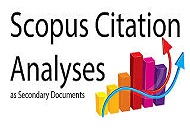Pengaruh Model Pembelajaran Problem Based Learning dalam Pembelajaran Pendidikan Kewarganegaraan terhadap Kemampuan Berpikir Kritis Mahasiswa
DOI:
https://doi.org/10.33394/jk.v6i1.2445Keywords:
Problem Based Learning, Critical Thinking.Abstract
This study aims to determine the implementation of model learning problem based learning in citizenship education of national integrity material to students critical thinking ability. This research uses a quantitative approach. Sample determination using random sampling clusters. This study was imposed on students of the second semester of primary school teacher Education Program, Nusa Cendana University. The selected sample is Class II A as an experimental class of 24 students and class II B as a control class as many as 25 students. The instrument used in the form of observation guidelines and a test is about the description to measure the student's critical thinking ability. Data obtained in the form of pretests and posttest values. The Data was analyzed using SPSS 16.0 to see test normality and test homogeneity as prerequisite test then continued with Test T. Results obtained from the test of normality (Kolmogorov-Smirnov test) is the value of Sig 0138 (> 0.05) which shows the sample data derived from the population of normal and homogeneity test (test Levene) is 0322 (> 0.05) which shows the value of Posttest uniform and the significance value of T-Test 0.000 (< 0.05 Learning problem based learning on the ability of critical thinking.
References
Alwasilah, C. (2010). Contextual Teaching and Learning : Menjadikan kegiatan Belajar-Mengajar Mengasyikkan dan Bermakna. Bandung : Kaifa
Aini, S. (2013). Pengaruh Ingatan dan Kemampuan Berpikir Kritis Terhadap Hasil Belajar Siswa Pada Mata Pelajaran Fisika di MA Madani Alauddin Paopao Kabupaten Gowa. 1 (1), 63 - 76. http://journal.uin-alauddin.ac.id/index.php/PendidikanFisika/article/view/1097/1068
Amin, S. (2017). Pengaruh Model Pembelajaran Problem Based Learning Terhadap Kemampuan Berpikir Kritis dan Hasil Belajar Geografi. Jurnal Pendidikan Geografi. 4 (3), 25 – 36. http://repository.uin-malang.ac.id/2030/
Changwong, K., Sukamart, A., Sisan, B. (2018). Critical thinking skill development: Analysis of a new learning management model for Thai high schools. Journal of International Studies, 11(2), 37-48. https://www.jois.eu/files/3_435_Changwong%20et%20al.pdf
Farisi, A., Hamid, A., Melvina. (2017). Pengaruh Model Pembelajaran Problem Based Learning Terhadap Kemampuan Berpikir Kritis dalam Meningkatkan Hasil Belajar Siswa Pada Konsep Suhu dan Kalor. Jurnal Ilmiah Mahasiswa (JIM) Pendidikan Fisika. 2 (3). 283 – 287. https://www.neliti.com/publications/202647/pengaruh-model-pembelajaran-problem-based-learning-terhadap-kemampuan-berpikir-kritis.
Faradila, R., Fauzi, Viktoria, L., (2017). Pengaruh Kemampuan Bepikir Kritis Terhadap Hasil Belajar Matematika Siswa Kelas V SDN 3 Banda Aceh. Jurnal Ilmiah Pendidikan Guru Sekolah Dasar. 2 (4), 119 – 126. https://etd.unsyiah.ac.id/index.php?p=show_detail&id=35527
Handayani, R. (2016). Students’ Critical Thinking Skills in a Classroom Debate. LLT Journal. 19 (2), 132 – 140. https://e-journal.usd.ac.id/index.php/LLT/article/view/307/262
Kurniahtunnisa, K., Dewi, N. K., Utami, N.R. (2016). Pengaruh Pembelajaran Problem Based Learning Terhadap Kemampuan Berpikir Kritis Siswa Materi Sistem Ekresi. 5(3). 310 – 318. https://journal.unnes.ac.id/sju/index.php/ujbe/article/view/14865
Karakoc, M. (2016). The Significance of Critical Thinking Ability in terms of Education. International Journal of Humanities and Social Science. 6 (7). 81 – 84. http://www.ijhssnet.com/journals/Vol_6_No_7_July_2016/10.pdf
Komariyah, S., Laili, A.F.N., (2018). Pengaruh Kemampuan Berpikir Kritis Terhadap Hasil Belajar Matematika. Jurnal Penelitian Pendidikan dan Pengajaran Matematika. 4 (2), 55 – 60. http://jurnal.unsil.ac.id/index.php/jp3m/article/view/SIT42
Oktaviani, A.,Reinita, Abidin, Z. (2018). Pengaruh Model PBL Terhadap Hasil Belajar Siswa Pada Pembelajaran Pendidikan Kewarganegaraan Kelas V Sekolah Dasar. E – Journal Inovasi Pembelajaran SD. Vol 1. https://www.google.com/search?q=PENGARUH+MODEL+PBL+TERHADAP+HASIL+BELAJAR+SISWA+PADA+PEMBELAJARAN+PENDIDIKAN+KEWARGANEGARAAN+KELAS+V+SEKOLAH+DASAR&rlz=1C5CHFA_enID884ID884&oq=PENGARUH+MODEL+PBL+TERHADAP+HASIL+BELAJAR+SISWA+PADA+PEMBELAJARAN+PENDIDIKAN+KEWARGANEGARAAN+KELAS+V+SEKOLAH+DASAR&aqs=chrome..69i57.1014j0j7&sourceid=chrome&ie=UTF-8
Ulfah, R.A., Prasetyo, D., Marzuki. (2018). Pengaruh Model PBM dalam Pembelajaran PKn Terhadap Kemampuan Berpikir Kritis dan Sikap Demokratis. Citizenship Jurnal Pancasila dan Kewarganegaraan. 6 (2). 126 – 139. http://e-journal.unipma.ac.id/index.php/citizenship/article/view/3307/1883
Septiana, T.S., Kurniawan, M.R. (2018). Penerapan Model Problem Based Learning Untuk Meningkatkan Kemampuan Berpikir Kritis Siswa Kelas V Pada Mata Pelajaran Pkn di SD Muhamadiyah Kauman Tahun 2016/ 2017. Jurnal Fundamental Pendidikan Dasar. 1 (1). 94 – 105. https://www.google.com/search?q=pengaruh+model+PBL+terhadap+kemampuan+berpikir+kritis+materi+pkn&safe=strict&rlz=1C5CHFA_enID884ID884&sxsrf=ALeKk01XJuNG3eg9abEubshYhv73Sdd3Og:1582793156412&ei=xIFXXrzDGMS-9QOQm6HQBg&start=10&sa=N&ved=2ahUKEwi8tdz-q_HnAhVEX30KHZBNCGoQ8tMDegQIDBAp&biw=1280&bih=598
Sianturi, A., Sipayung, T.N., Simorangkir, F.M.A., (2018). Pengaruh Model Problem Based Learning Terhadap Kemampuan Berpikir Kritis Matematis Siswa SMPN 5 Sumbul. UNION: Jurnal Pendidikan Matematika. 6 (1), 29 – 42. http://jurnal.ustjogja.ac.id/index.php/union/article/view/2082
Susiwi, I. (2018). Pengaruh Model Pembelajaran Berbasis Masalah Terhadap Kemampuan Berpikir Kritis dan Hasil Belajar Pkn Siswa. Jurnal Ilmiah Skylandsea. 2 (1), 93 – 99. https://www.politeknikmbp.ac.id/phocadownloadpap/dosen/JurnalSKLVol2No12018/PENGARUH%20MODEL%20PEMBELAJARAN%20BERBASIS%20MASALAH%20TERHADAP%20KEMAMPUAN%20BERPIKIR%20KRITIS%20DAN%20HASIL%20BELAJAR%20PKn%20SISWA.pdf
Downloads
Published
How to Cite
Issue
Section
Citation Check
License
License and Publishing AgreementIn submitting the manuscript to the journal, the authors certify that:
- They are authorized by their co-authors to enter into these arrangements.
- The work described has not been formally published before, except in the form of an abstract or as part of a published lecture, review, thesis, or overlay journal.
- That it is not under consideration for publication elsewhere,
- That its publication has been approved by all the author(s) and by the responsible authorities – tacitly or explicitly – of the institutes where the work has been carried out.
- They secure the right to reproduce any material that has already been published or copyrighted elsewhere.
- They agree to the following license and publishing agreement.
Authors who publish with JK agree to the following terms:
- Authors retain copyright and grant the journal right of first publication with the work simultaneously licensed under a Creative Commons Attribution License (CC BY-SA 4.0) that allows others to share the work with an acknowledgment of the work's authorship and initial publication in this journal.Â
- Authors are able to enter into separate, additional contractual arrangements for the non-exclusive distribution of the journal's published version of the work (e.g., post it to an institutional repository or publish it in a book), with an acknowledgment of its initial publication in this journal.
- Authors are permitted and encouraged to post their work online (e.g., in institutional repositories or on their website) prior to and during the submission process, as it can lead to productive exchanges, as well as earlier and greater citation of published work.
- Open Data Commons Attribution License, http://www.opendatacommons.org/licenses/by/1.0/ (default)

This work is licensed under a Creative Commons Attribution-ShareAlike 4.0 International License.








